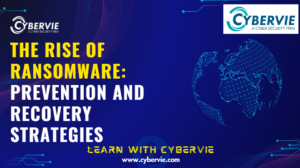Introduction to deepfake
Deepfake is referred to as the creation of hoax images, sounds, and videos. The deepfake technology combines various concepts from deep learning to create something that is eventually “fake”. This deepfake technology allows the users to impersonate as others in audio or video format. With the recent advancements in Artificial Intelligence (AI) and Machine Learning (ML) concepts, there had been a widespread increase in the amount or volume of deepfake content available worldwide.
This increase in the deepfake content proposes a greater risk to the cyber industry and to the cybersecurity professionals. In this article, we would be looking at the impacts which deepfake puts in the cyber industry.
Deepfakes are generally created through the use of deep learning algorithms, specifically by the usage of GAN technology, thereby making them quite effective and accurate. This technology could also be used for various unethical purposes such as forgeries and spreading false information or propaganda.
Specifically in the cyber landscape, the deepfake technology is being used to conduct:
Social Engineering attacks and frauds: Deepfake technology has enhanced the traditional social engineering attack mechanism by adding a layer of realism. For example: attackers create fake videos calls or audio messages to lure their victims into making them believe that they are talking to a real known individual thus gaining their trust and then extracting sensitive information from them without any difficulty. This makes phishing and spear-phishing attacks more convincing and harder to detect.
Corporate Espionage:
Businesses are at risk of deepfake attacks aimed at impersonating executives or employees to gain unauthorized access to confidential information. These attacks can result in significant financial losses and damage to a company’s reputation. The attacker can pretend to be one of the organization’s employees and by using various deepfake techniques he can enter the establishment easily.
Disinformation and Misinformation:
Deepfakes can be used to spread false information, manipulate public opinion, and undermine trust in legitimate sources. By creating fake videos or audio recordings of various politicians, public figures and celebrities making outrageous statements, they could create chaos and confusion among the citizens of a nation, which can cause significant distrust and disharmony. The situation of unrest would also lead to several drastic results.
Credential Theft and Identity Fraud:
Deepfakes can be used to impersonate individuals in a highly convincing manner, leading to credential theft and identity fraud. For example, a deepfake video of an executive could be used to trick employees into providing login details or other sensitive information. This can lead to unauthorized access to corporate networks and databases.
Conclusion
Deepfake technology represents a significant challenge to cybersecurity, with the potential to cause widespread harm if left unchecked. The realism and accessibility of deepfake tools make them a formidable weapon in the hands of malicious actors. However, through a combination of advanced detection technologies, public education, robust authentication protocols, and strong regulatory frameworks, it is possible to mitigate the risks associated with deepfakes. As the battle against digital deception continues, vigilance and innovation will be key to protecting the integrity of information in the digital age.







